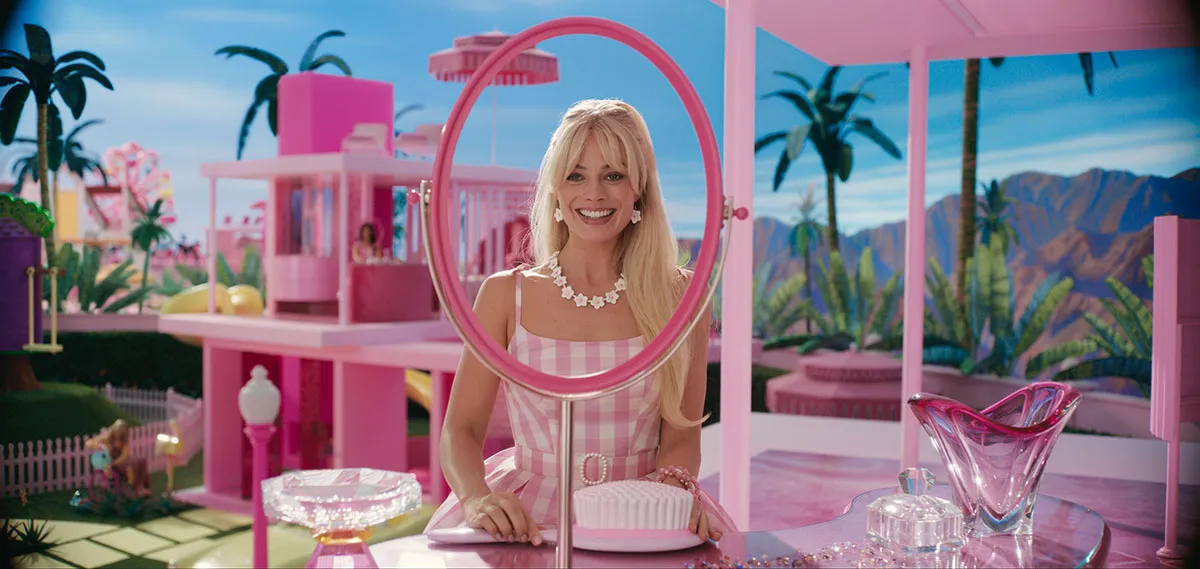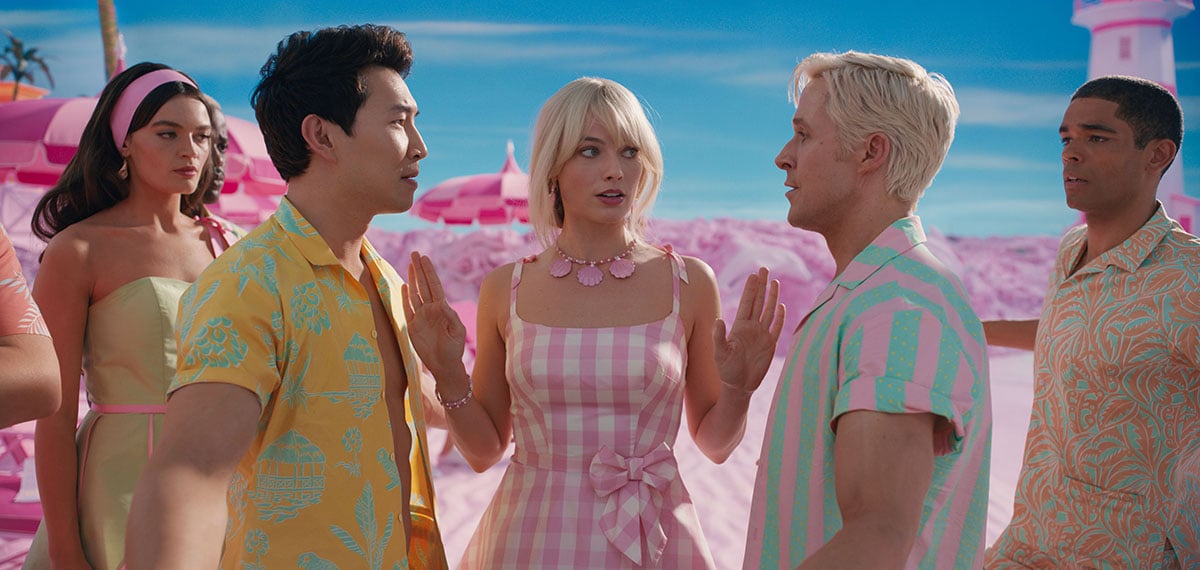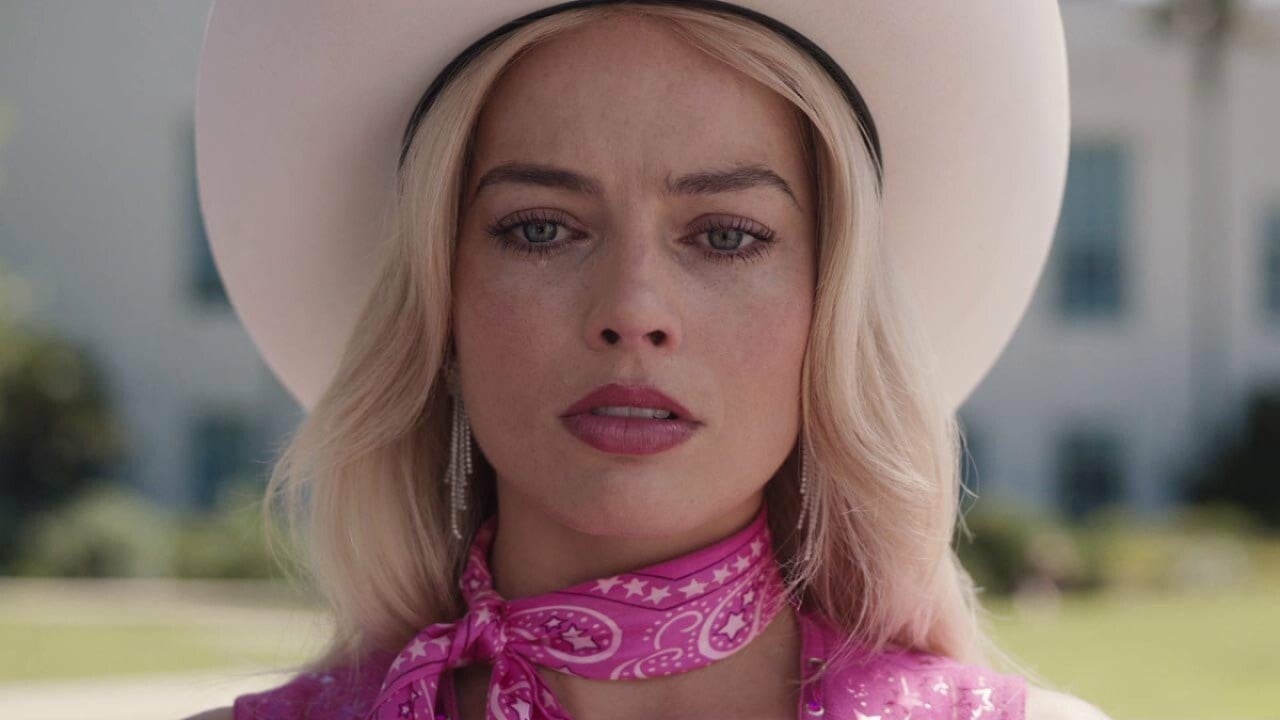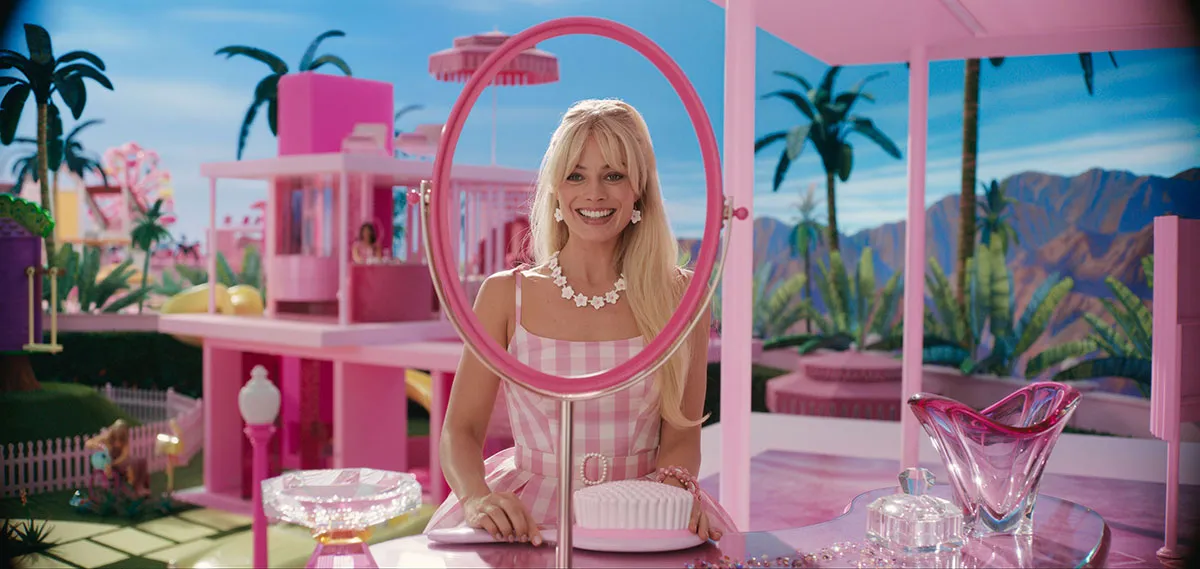
One might say that Barbie belongs only to the kids who played with the popular Mattel toy growing up. They’d be wrong, but that might be their thought process. The Greta Gerwig film (co-written by Gerwig and her partner Noah Baumbach) takes us into Barbieland, where Barbie (Margot Robbie) and Ken (Ryan Gosling) live their perfectly pink lives, Ken’s job is just “beach,” and all the other Barbies are in charge. President Barbie (Issa Rae) calls the shots, and Writer Barbie (Alexandra Shipp) wins awards for her work. It is a great place to be a woman.
But it’s a world so far removed from our own that the central theme of Barbie turns from a hilarious commentary on the origins of the plastic doll who loves pink and becomes a love letter to all those kids who looked to Barbie to inspire them. Disclaimer: I was a Barbie girl myself. I had a Barbie dress I would wear every day, my wallpaper was Barbie themed, I still have the Hallmark ornaments, and when my mother tried to give them to my niece, I banned her from doing so. Barbie is mine, but as Barbie proves to us, she belongs to everyone and serves as a reminder that everyone, women especially, are more than what we’re labeled.
Beautifully underscored by Billie Eilish’s “What Was I Made For?” the film isn’t about the doll so much as about a feeling many people (especially women) understand deeply—the feeling of faking your way through your life because of how we are told to feel and how we have to overcome it.
The Kenergy is strong with this one

I was worried when all the early social media reactions about the film seemed to praise Ryan Gosling’s Ken. After seeing the film, I understand why, and it is truly down to two simple facts: Gosling, Simu Liu, Scott Evans, Ncuti Gatwa, and Kingsley Ben-Adir have a Kenergy that is unmatched, and I think that no one wanted to spoil the amazing moments that Barbie has throughout the movie. All of the Barbies.
When it comes to the comedy of the film, it is tied to Barbie’s life in Barbieland and her relationship with Ken. This includes all the Barbies and all the Kens. A lot of the dialogue of Barbieland feels like kids playing with their toys, and it’s a nod to our childhood games while also setting the scene for how the Barbies interact with the Kens.
My one complaint with this movie is that there are just too many Barbies and Kens and too little time spent with them. Dua Lipa’s Mermaid Barbie is only featured briefly when she pops up out of the water and later, with her own Merman Ken, in a surprising cameo. But since there are so many Ken and Barbie pairings to explore, it almost feels like we don’t know much about them all as a collective. It doesn’t feel like the movie lacks them, but it’d be nice if we spent more time with them as a bonus. Still, the rest of the film carries an important message, so whatever it may be lacking is made up for in the powerful moments.
Accepting yourself

Many of us have complicated relationships to our Barbie dolls. They taught us to be proud of our womanhood but they also instilled unrealistic beauty standards in us. I think that’s why many of us also mangled our Barbie dolls. Weird Barbie (Kate McKinnon) is a stunning example of that love-hate relationship kids had with the dolls, and she also serves as Stereotypical Barbie’s (Robbie) guide in what is causing her to have an existential crisis.
What is truly shocking about Barbie, as a film, is that hidden beneath the Ken ballads and iconic outfits is a message of acceptance from the very doll that causes so many of us to question ourselves.
This isn’t to say I ever hated Barbie. In fact, I continue to love her to this day, nut Barbie recognizes her complicated history and shows us that even Barbie has her bad days and that we, as women, do not always have to be perfect and take the real-world assault that pounds us down daily.
When Barbie cries, I cry

It is, at its core, a comedy, but buried deep within it is an unrelenting commentary on the patriarchy, feminism, and the societal impact that those who uphold the patriarchy have on women as a whole. It didn’t occur to me, before the movie, that seeing Barbie cry would break me, but it did. She’s meant to be perfect, and yet here she is, broken like we often are in the “real world.” The Barbie’s Dream House life I dreamed of as a child isn’t what it’s cracked up to be, even for Barbie.
And yet, this is a movie about Barbie discovering the beauty of womanhood no matter the pain that comes with it, that women don’t fit in a perfect mold and there’s no “true” woman. Barbie, created to uphold a standard for women, finding how she relates to womanhood and how we are all different and beautiful together? It felt like the perfect game of Barbies for all the women who loved her for years.
Barbie gives those of us who idolized her the important reminder that being a woman isn’t about what society deems us to be. It is about being complicated and emotional and brave and in charge all at the same time, and that’s beautiful. Gerwig brought Barbie’s dream world to life in a way that sings to the Barbie kids in us, all while making sure we know that being a woman isn’t perfect, but it is wonderful.
This piece was written during the 2023 WGA and SAG-AFTRA strikes. Without the labor of the writers and actors currently on strike, the work being covered here wouldn’t exist.
(featured image: Warner Bros.)
Have a tip we should know? [email protected]
